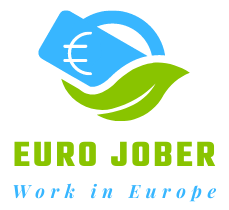Overview of the Greek Job Market
Greece’s job market has shown signs of steady recovery in recent years, largely due to economic stabilization, tourism growth, and digital transformation.
The national unemployment rate, while still higher than the EU average, has declined. As of early 2025, it’s estimated at around 10.5%, down from over 12% in 2023.
The labor force participation rate remains consistent, with improvements in female and youth employment. Many sectors are now prioritizing digital skills and language proficiency.
The economy’s structural changes have led to a shift in job availability. There’s growing demand in tech, logistics, energy, and healthcare. Meanwhile, traditional roles in agriculture and manufacturing are shrinking due to automation.
Government incentives for startups and foreign investments have contributed to job creation. However, bureaucracy and limited access to capital still pose challenges.
Seasonal employment in tourism remains a cornerstone of the labor market, especially during summer. While full-time contracts are increasing, short-term contracts remain common in several sectors.
Despite improvements, brain drain persists. Many skilled professionals continue to seek better opportunities abroad. Efforts to reverse this trend through remote job creation and repatriation programs are ongoing.
The Greek job market in 2025 is dynamic. It blends traditional industries with new opportunities shaped by technology, global market trends, and local reforms.
In-Demand Jobs in Greece in 2025
Tech and Digital Economy
Greece’s digital economy is expanding rapidly. The demand for skilled tech professionals has outpaced supply.
Jobs in software development, cybersecurity, and data analysis are seeing the highest growth. Companies based in Athens and Thessaloniki, as well as regional hubs, are actively hiring developers and IT support staff.
International firms outsourcing tech work to Greece are also driving demand. This trend is supported by relatively lower labor costs and an educated, multilingual workforce.
Government-backed digital transformation projects are boosting the need for tech consultants and system integrators in both public and private sectors.
Fluency in English and experience with cloud-based platforms (AWS, Azure) are major advantages. Greek universities are now tailoring programs to meet these demands, but the private sector still relies heavily on imported talent or freelancers.
Remote roles are common. Many Greek professionals now work for companies abroad while residing locally.
Tourism and Hospitality
Tourism continues to be one of Greece’s top economic drivers. In 2025, it’s responsible for over 20% of employment.
The sector includes hotels, travel agencies, restaurants, and cultural services. Demand is highest for multilingual staff in customer-facing roles, particularly in destinations like Crete, Santorini, and Athens.
Hospitality jobs include hotel managers, chefs, tour guides, and digital marketers for travel brands. Seasonal contracts are widespread, but high performers often receive offers for permanent roles.
New trends in luxury travel and eco-tourism have created niches requiring specialized skills, such as sustainable tourism consultants or high-end experience designers.
Post-pandemic recovery and international events hosted in Greece have increased tourist flows, resulting in expanded hiring across the board.
Basic Greek proficiency is often expected, but many roles are open to non-native speakers with English or other major European languages.
Healthcare and Public Services
Public and private healthcare sectors are hiring due to aging demographics and post-pandemic reforms.
Nurses, doctors, physiotherapists, and elderly care workers are in high demand. The shortage of specialized medical professionals is driving recruitment from both domestic and foreign talent pools.
Public hospitals are expanding services, and rural areas have seen an uptick in hiring incentives to attract medical staff.
Greece’s National Health System (ESY) has introduced digital health platforms, requiring IT-literate professionals for support roles.
Pharmacists, lab technicians, and home health aides are also needed, especially in smaller towns.
Foreign-trained professionals may need to go through licensing or credential recognition processes, but shortages are leading to faster approvals.
Employment Challenges and Unemployment Rates
Despite positive growth, unemployment—especially among youth—remains a problem.
In early 2025, youth unemployment stands at around 22%. Many young graduates face a mismatch between their education and the skills employers want.
Long-term unemployment is also a concern, with older workers struggling to adapt to modern work demands or re-enter the workforce.
Job security is improving, but precarious employment remains common in sectors like retail, agriculture, and construction.
Informal labor, though declining, still affects job market transparency and social benefits access.
To tackle these issues, the government is investing in vocational training programs, digital upskilling, and public-private partnerships to modernize hiring practices.
Another challenge is underemployment—many workers are employed part-time or below their skill level, often due to economic necessity.
Efforts to reduce unemployment are seeing results, but sustainable, inclusive job growth remains a work in progress.
Remote Work and Freelancing in Greece
Remote work has gained traction in Greece, especially in urban areas and among tech-savvy professionals.
Freelancing platforms have allowed thousands of Greeks to work for international clients, offering services in writing, design, programming, and consulting.
The government offers tax incentives for digital nomads and returning professionals, helping to reposition Greece as a remote work destination.
Coworking spaces are expanding in Athens, Thessaloniki, and even on islands like Rhodes and Crete. These spaces support freelancers and remote employees with reliable infrastructure.
However, internet connectivity in rural areas can still be inconsistent. Efforts to expand broadband coverage are underway, including 5G rollouts.
Legal frameworks around remote work have improved, but many freelancers still operate without formal contracts or social insurance.
Despite these issues, remote work is offering a path to reduce unemployment and retain skilled professionals in the country.
Tips for Finding a Job in Greece
- Use local and international job portals like Kariera.gr, Skywalker, and LinkedIn.
- Learn basic Greek if you’re a foreigner—it improves job prospects.
- Focus your CV on relevant skills and tailor it to each role.
- Networking is crucial. Attend industry events or webinars.
- Check company websites directly for open roles, especially SMEs.
- EU citizens don’t need a work visa, but non-EU nationals will need a residence permit.
- Consider volunteering or internships to get a foot in the door.
- Join Facebook or WhatsApp job groups targeted at expats or specific industries.
Job seekers should also explore remote opportunities, especially in fields like IT, writing, and design, to bypass local market saturation.
The Greek job market is changing.
Digitalization, green energy projects, and tourism growth will shape job creation. Government reforms are trying to modernize education and labor systems.
The shift to remote work and digital services will continue, providing new opportunities for both local residents and returning Greeks.
Challenges like youth unemployment, skills mismatch, and underemployment remain, but solutions are slowly being implemented.
By 2030, Greece aims to align more closely with EU labor benchmarks. This includes reducing unemployment, boosting innovation, and creating a more inclusive economy.
Job seekers should remain adaptable. Upskilling and staying informed will be key to long-term success in the evolving Greek workforce.

